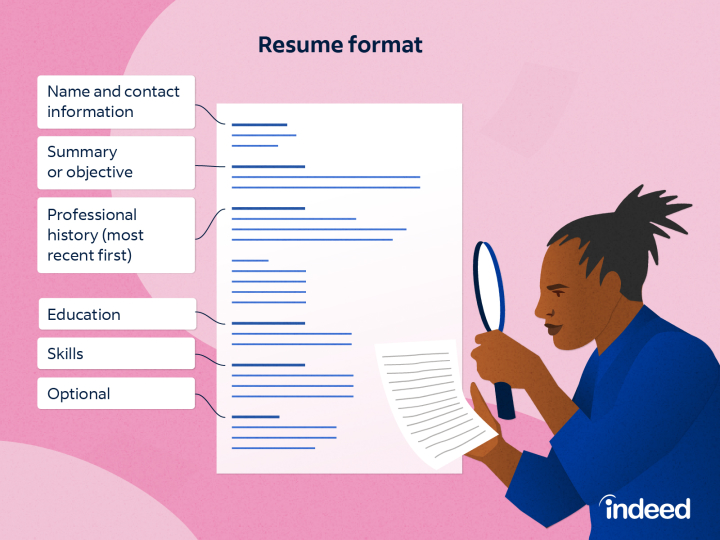
In addition to offering you CV examples to download, we give you some simple tips to help you create and write a good CV. Find out more below.
1. Have a differentiating CV
Your Curriculum Vitae must stand out from the others, both in its design and in its content. To get started, consider using the best Curriculum Vitae templates that you will find at CV creator and download a template CV here.
Having an original CV will allow you to hold the attention of the recruiter and highlight its content. A good CV must be unique and represent your personality.
Adding links to your personal blog, a QR code to a video or to your portfolio can also be a way to differentiate yourself from other candidates.
2. Specify your document for each position held, the missions and tasks carried out
The recruiter will thus be able to get a better idea of all the skills and knowledge that you have been able to put into practice during your last professional experiences. Describe the main tasks carried out, as well as the results obtained. It is best to list this information in the form of “bullet points”. Be precise and concise, save the details for the interview.
Add significant and quantified data (e.g. percentage or statistics) to your experience descriptions to demonstrate your successes in the position indicated.
3. List your professional experiences
This part should not be neglected. All your professional experiences: the name and size of the company you’ve already worked for, the sector of activity of the previous company, start date and end date of the contract, the position held, the tasks carried out, the results obtained, the number of people you had under your responsibility, etc…
This list of experience does not necessarily have to be exhaustive: it is best to indicate only the experiences that seem significant to you with regard to the position you are applying for.
4. Specify the level of your skills
The indication of your level in language (French, Spanish, English…), computer (Word, Excel, Photoshop…), etc. will allow the recruiter to have better visibility on your skills. These elements can mark the difference compared to the other candidates.
5. Translate your Curriculum Vitae
It happens that some companies ask to send your CV in English (or translated into other languages). Having a CV already translated allows you to anticipate these requests and demonstrate your professionalism to the recruiter. Having a CV in English is now more than recommended.
